Unlocking Cosmic Insights to Enhance Human Decision-Making
Building upon the foundational understanding of how cosmic events influence modern strategies like How Cosmic Events Impact Modern Strategies like Pirots 4, it becomes essential to explore the nuanced ways in which cosmic signals subtly shape human cognition and decision-making frameworks. Recognizing these influences not only broadens our scientific perspective but also opens new horizons for integrating cosmic data into practical strategic tools.
1. The Science of Cosmic Signals and Their Subtle Influences on Human Cognition
a. Understanding Cosmic Phenomena as Sources of Information Beyond Traditional Senses
Cosmic phenomena, such as solar flares, cosmic microwave background radiation, and gravitational waves, are increasingly recognized as potential sources of information that extend beyond our conventional sensory perception. Researchers have found that electromagnetic fluctuations from solar activity can influence human biological rhythms, including melatonin production and circadian cycles. For example, during periods of intense solar storms, some studies report increased instances of sleep disturbances and altered mood states, hinting at an unconscious sensitivity to cosmic electromagnetic fluctuations.
b. The Role of Electromagnetic and Gravitational Waves in Shaping Neural and Decision-Making Processes
Electromagnetic waves emitted during cosmic events can interact with Earth’s magnetosphere, potentially affecting neural activity. Recent experimental data suggest that electromagnetic interference, even at low levels, can modulate brainwave patterns associated with focus, relaxation, and alertness. Similarly, gravitational waves—ripples in spacetime detected by observatories like LIGO—may influence subtle biological processes, although this remains an emerging area of research. These phenomena could provide a new layer of environmental input that influences decision-making, especially in high-stakes scenarios where intuition plays a key role.
c. Differentiating Between Direct and Indirect Cosmic Influences on Human Behavior
Direct influences involve clear physiological responses to cosmic signals, such as geomagnetic storms affecting heart rate variability. Indirect influences are more nuanced, where cosmic phenomena impact psychological states or collective consciousness, thereby shaping behavior over time. Recognizing this distinction helps in developing more sophisticated models that incorporate both immediate physiological reactions and longer-term subconscious shifts in perception and judgment.
2. Harnessing Cosmic Data for Enhanced Decision-Making Frameworks
a. Integrating Astronomical and Cosmic Event Data into Cognitive Models
Modern decision frameworks can incorporate real-time cosmic data, such as solar activity indices, planetary alignments, and cosmic ray fluxes, into predictive models. For instance, strategic planning algorithms can adjust risk assessments based on solar cycle phases, which correlate with increased geomagnetic disturbances that influence human alertness and decision quality. Incorporating such data requires interdisciplinary collaboration between astrophysicists, neuroscientists, and data scientists.
b. Emerging Technologies for Monitoring Cosmic Variables Relevant to Human Decisions
Advances in satellite technology, ground-based cosmic ray detectors, and electromagnetic sensors enable continuous monitoring of cosmic variables. Wearable devices equipped with magnetometers and EEG sensors can potentially track how cosmic fluctuations influence neural activity in real time, providing actionable insights. For example, predictive analytics could warn individuals or organizations about periods of heightened cosmic activity that may impair decision-making, allowing for strategic adjustments.
c. Case Studies: Practical Applications of Cosmic Data in Strategic Planning and Personal Choice
| Scenario | Application |
|---|---|
| Financial Trading During Solar Cycles | Adjusting trading algorithms based on solar activity forecasts to mitigate volatility caused by cosmic influences on trader psychology. |
| Military Strategy and Geomagnetic Storms | Scheduling sensitive operations during geomagnetically quiet periods to optimize decision accuracy and coordination. |
| Personal Decision-Making and Intuition | Using cosmic activity insights to choose optimal times for critical life decisions, such as career changes or investments. |
3. Psychological and Neurological Pathways: How Cosmic Awareness Affects Human Mindsets
a. The Impact of Cosmic Perspectives on Risk Perception and Future Planning
Awareness of cosmic cycles fosters a broader perspective on time and uncertainty, encouraging individuals to incorporate long-term thinking. For example, understanding planetary cycles and their historical correlations with societal shifts can reduce anxiety about immediate setbacks, promoting resilience. Such cosmic awareness can shift risk perception from being solely human-centric to a more holistic view that includes celestial patterns, thereby enhancing strategic patience.
b. Enhancing Intuitive Decision-Making Through Cosmic Awareness
Studies suggest that heightened consciousness of cosmic rhythms can strengthen intuitive faculties, enabling quicker and more accurate judgments. Practices such as cosmic meditation—focusing on celestial patterns—can train the subconscious mind to detect subtle environmental cues, improving instinctual responses in complex environments. This aligns with research indicating that intuition often taps into subconscious pattern recognition, which cosmic awareness can amplify.
c. Overcoming Cognitive Biases by Incorporating Cosmic Contexts
Cognitive biases like overconfidence or anchoring can distort decision-making. Integrating cosmic contexts introduces a sense of humility and perspective, counteracting these biases. For instance, recognizing the vastness and cyclical nature of cosmic phenomena can remind decision-makers of their limited control and encourage more adaptive, flexible strategies.
4. Bridging Science and Spirituality: A Holistic Approach to Cosmic Insights
a. Exploring the Intersection of Astronomical Science and Human Consciousness
Recent interdisciplinary research explores how scientific understanding of cosmic phenomena aligns with spiritual and consciousness studies. The concept of the «overview effect,» experienced by astronauts viewing Earth from space, exemplifies this intersection—fostering a sense of interconnectedness and responsibility that can influence decision-making at individual and collective levels.
b. Rituals and Practices That Foster Cosmic Connection for Better Decisions
Practices such as celestial meditation, stargazing, and lunar rituals can deepen one’s cosmic connection. These rituals serve to synchronize mental states with celestial rhythms, heightening awareness and clarity in decision-making processes. For example, lunar phases have historically been associated with planting and harvesting cycles; modern innovators adapt these rhythms for personal productivity and strategic planning.
c. The Potential of Cosmic Meditation and Contemplation in Strategic Thought
Cosmic meditation involves contemplating celestial movements and patterns, which can induce a state of expanded awareness. This practice enhances neural plasticity, making the brain more receptive to innovative insights. Strategic thinkers employing cosmic contemplation often report breakthroughs in complex problem-solving, as they tap into subconscious knowledge networks interconnected with cosmic cycles.
5. Ethical and Philosophical Implications of Using Cosmic Insights in Decision-Making
a. Navigating the Moral Dimensions of Cosmic Data Utilization
Leveraging cosmic data raises questions about consent, privacy, and manipulation. For example, using cosmic signals to influence markets or political decisions must consider ethical boundaries—avoiding exploitation or undue interference. Ethical frameworks should be developed to govern the responsible use of cosmic insights, emphasizing transparency and respect for individual autonomy.
b. The Responsibility of Interpreting Cosmic Signals in Personal and Collective Choices
Interpreting cosmic signals carries the risk of misjudgment, leading to unintended consequences. Decision-makers bear the responsibility to validate cosmic data with scientific rigor and to remain humble about its limitations. A collective ethical stance emphasizes humility, continuous learning, and the acknowledgment of cosmic uncertainties.
c. The Future of Cosmic-Informed Ethics in Human Strategy
As our understanding advances, cosmic-informed ethics will likely evolve to incorporate principles that respect both scientific integrity and spiritual wisdom. Future frameworks may promote global stewardship, recognizing humanity’s place within a cosmic ecosystem, fostering decisions that are sustainable and ethically sound.
6. From Cosmic Events to Practical Wisdom: Developing Intuitive Decision Frameworks
a. Creating Decision Models Inspired by Cosmic Patterns and Cycles
Decision models can incorporate cyclical cosmic patterns, such as planetary alignments or solar cycles, to forecast optimal timing for actions. For example, traders might use solar cycle data to predict periods of heightened market volatility, aligning their strategies accordingly. These models benefit from integrating astronomical data with traditional decision theories, fostering a more holistic approach.
b. Training Human Intuition to Read Cosmic Cues for Better Outcomes
Training involves mindfulness practices, cosmic awareness exercises, and pattern recognition drills that enhance sensitivity to subtle cosmic cues. Workshops and simulations can help decision-makers develop the skill to intuitively sense shifts in cosmic energies, which may correlate with environmental or social changes. Over time, this enhances rapid, adaptive responses in complex environments.
c. Limitations and Challenges of Relying on Cosmic Insights in Complex Environments
Despite promising avenues, relying solely on cosmic insights faces challenges such as data ambiguity, interpretative biases, and the risk of overconfidence in cosmic cues. Complex environments require integrating cosmic data with empirical evidence and contextual understanding. Developing robust decision frameworks involves balancing cosmic intuition with rational analysis, acknowledging the uncertainties inherent in cosmic signals.
7. Reconnecting with the Parent Theme: How Cosmic Events Impact Modern Strategies like Pirots 4
a. Reflecting on the Influence of Cosmic Phenomena on Strategic Algorithm Development
Modern algorithms, such as those in Pirots 4, can incorporate cosmic data streams to enhance adaptability. For instance, machine learning models trained on cosmic activity patterns can predict environmental shifts affecting strategic operations. Recognizing cosmic influences ensures that algorithms remain resilient amid unpredictable cosmic and terrestrial changes.
b. Integrating Cosmic Perspectives to Future-Proof Modern Decision Strategies
Incorporating cosmic perspectives leads to more resilient strategies that account for long-term celestial cycles and unpredictable cosmic events. This approach aligns with the concept of strategic foresight, embedding cosmic awareness into decision matrices to mitigate risks associated with cosmic disturbances and to capitalize on cosmic opportunities.
c. Synergizing Cosmic Insights with Technological Strategies for a Holistic Approach
By combining cosmic data analytics with advanced AI and predictive modeling, decision frameworks like Pirots 4 can evolve into holistic systems. Such integration fosters a deeper understanding of environmental and cosmic influences, enabling more nuanced and adaptive strategies that are attuned to both earthly and celestial dynamics.
Harnessing cosmic insights not only enhances strategic robustness but also elevates human awareness of our interconnected universe—paving the way for more conscious and ethically grounded decision-making in an ever-changing cosmos.


